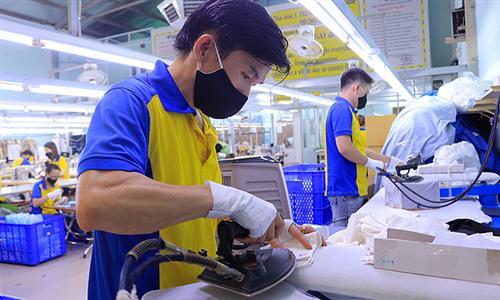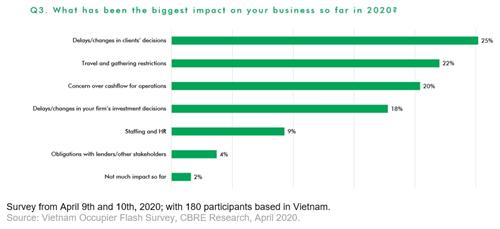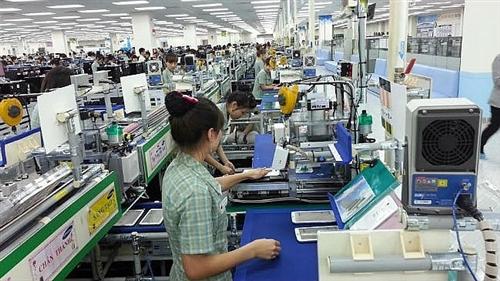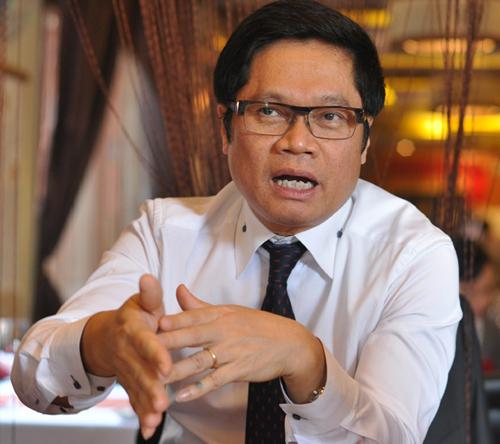Prime focus for investment attraction
Prime focus for investment attraction
Vietnam has made bold moves in amendments to investment rules to increase its attraction to overseas investors in past decades. Tony Foster, managing partner of the Vietnam office at Freshfields Bruckhaus Deringer LLP, looks into the country’s improvement path, and how barriers in legal frameworks, infrastructure, and human resources can be removed in the near future.

Tony Foster, managing partner of the Vietnam office at Freshfields Bruckhaus Deringer LLP,
|
For much of the quarter-century that we have assisted foreign companies investing in Vietnam, the government has made bold and often brave changes to its economy when needed. Over these years there have been two mutually-reinforcing underpinnings.
The Vietnamese government was trying to attract foreign investment and many companies, in a rapidly globalising world, were genuinely interested in looking at Vietnam as a possible destination for their investments.
The current coronavirus pandemic is shaking these foundations. They will not re-emerge unshaken from the earthquake. Ever-increasing globalisation of investment during most of the last 25 years had already begun to trend in the opposite direction, and this will probably increase in speed as younger generations come to the fore.
There are an endless number of conjectures that can be made about the future. But the fact is that all over the world, businesses and people will be re-evaluating priorities. A distant destination like Vietnam if you are looking at things from, say, New York or London, may not score highly on the priority list.
Bizarrely though, Vietnam has an opportunity. Much of the world is too deeply entrenched in its way of doing things to be able to change, whereas Vietnam is young and agile.
The Vietnamese people have proven adaptable in the past. In 1994, Vietnam was still effectively closed, with a slim law on foreign investment with provisions one could master in an afternoon.
It gradually set up a legal framework for a civil code and laws on commercials, enterprises, and securities. And then the government proved its bravery with a bilateral trade agreement with the US and all the changes that this entailed.
It did not rest on its laurels – it followed up with another brave stand, which was accession to the World Trade Organization. Again, numerous changes were needed to the legal framework as investment poured in.
The International Monetary Fund is forecasting the biggest economic recession or depression since the 1930s. Vietnam could avoid the worst effects if it swiftly moves the investment world forward a decade to 2030, while other countries are stuck in the present.
The response in Vietnam should be quick, sending a strong message to the business world, and involve should consider the following suggestions as a priority.
The environment
Poor air quality is rapidly changing Vietnam’s attractiveness and Western investors’ interest in Vietnam. The current slowdown is an opportunity to pass and enforce national legislation to protect citizens from death or disease brought on by filthy air, just as it has been protecting them so well from death or disease in the form of the coronavirus.
This will cost money, of course. If carried out correctly, it will spur Vietnamese investment into a new range of businesses, and it will tell the world and its own citizens that Vietnam is a place that cares, responds, and adapts. More and more investors will have environmental commitments to live up to after this pandemic and if Vietnam does not meet basic environmental criteria, foreign investment will be harder to attract.
The country could prioritise incentives for working at home to reduce commuting; an effective environmental protection agency; and a Vietnam clean air law.
Property development
The growth in demand for office (and probably retail) space, particularly in central business areas, will decline. Not many people will be rushing to rent more office space.
City planners should implement an effective law on zoning, green space regulations, and strict green building rules. These cost money in the short-term but investors and the next generation, both of whom are forward-looking groups, will reward them.
Innovation
The current situation is throwing up all sorts of opportunities with education technology and telehealth. Regulations should not be the sole province of the ministries of education and health. The Government Office itself should lead the way with appropriate legal frameworks for the private sector, which could ultimately benefit the public sector.
The government has demonstrated how to do this in the context of renewable energy: appropriate financial rewards attracted legions of investors. Pilot structures for telehealth and education tech should be next. The government could save large amounts of money, quality would improve, and investment would flow.
Fast-track processes for the Government Office would provide a sandbox for innovators to play in; pilot projects for related innovations would benefit the public sector; and issuance of a cybersecurity decree is required that achieves its goals without damaging business.
Capital
As always in a downturn, capital will become harder to raise. It will flow to where it is most appreciated and where the obstacles to cross-border investment are the least. Vietnam should aim to top that list.
The new Law on Securities was a missed opportunity, as it simply tinkered at the edges. The pending amendments to the Law on Enterprises and the Law on Investment would be a dismal repeat – the drafts should be reviewed from a vigorous and more lateral perspective to avoid setting Vietnam’s investment sector back several years. The bravery of prior years should be invoked to make quantum leaps forward and to avoid the trap of just tinkering.
Examples for priority in this area include treating investment by domestic and overseas entities as the same; allowing investment upon self-executing registration (except for a few identified strategic or sensitive sectors); and encouraging innovation through more flexible employee share option regulations.
Supply chains
Private sector manufacturing, originally started by foreign-invested companies, is now dominated by Vietnamese business and it has been critical to the country’s economic development over the last 25 years.
There are convoluted arguments around whether the pandemic will benefit Vietnam as international companies further diversify their supply chains away from China, or whether these foreign companies will reduce the length of supply chains altogether. Regardless of the answers, Vietnam should assume the worst.
A myriad of impediments stymies manufacturing companies in Vietnam. A list of problems is discussed on a regular basis with the government through the Vietnam Business Forum (VBF). One example, a perennial thorn, is the time and cost of customs clearance. Urgent and decisive action will help Vietnam preserve its attractiveness. If boards of directors see a country that is determined to treat investors well, they will be more able to take a pro-Vietnam decision against the range of alternatives that other countries will be offering to attract investment.
Infrastructure and energy
Public investment might be the only viable way of maintaining normalised historical rates of growth for Vietnam, but it will have an adverse effect on state finances and a pernicious effect on private investment in infrastructure.
Private investors in infrastructure have never had an easy time in Vietnam. Most have walked away quietly as projects took too long and were insufficiently rewarding. If, to boot, the public sector begins to be even more favoured, foreign investors pressured to invest at home will increase the speed of the walk.
Vietnam should quickly implement a liquefied natural gas-to-power project with a credible international sponsor in a manner that enables it to be project financed – and with this, the markets will notice.
Public-private partnerships
Public-private partnerships (PPPs) were not working even before the present situation. An example of the difficulties is the recent proposal to switch the status of eight sub-projects in the eastern cluster of the North-South Expressway from PPP to public investment.
The draft law is not a magic bullet. The governing law requirements alone will preclude international non-recourse project financing for major projects. The draft law on PPP should be looked at again, starting from the premise that investors with cash will be scarce. It is the last chance for such partnerships.
Enterprise restructuring
Contingent liability risks associated with legacy issues at large state-owned enterprises (SOEs) are a weakness for Vietnam’s public finances. SOEs dominate numerous sectors and deter investment.
SOEs should be looking at longer-lasting reforms or restructuring in order to carry things out differently. BIDV has recently shown how to attract substantial investment by making appropriate undertakings. Others, such as Vietcombank in its life insurance deal with pan-Asia insurance firm FWD, have shown how to monetise subsidiary assets.
There are no easy answers here as this is fundamentally a political issue. If politics does not work, swathes of the Vietnamese economy will not attract investment. Therefore, government leaders today should be as bold as their predecessors.




















